Graham Reid | | 3 min read
Lou Reed: Paranoia Key of E

When those archetypal New Yorkers Lou Reed and Patti Smith both released albums in the early days of 2000, it allowed anyone still interested in their careers the chance to consider their relative positions as they entered a new decade -- in fact a new century -- about 25 years (and more) on from their career defining best work.
Neither of them seemed especially interested in what we might call, "moving on" . . . And so?
When Lou Reed delivered his one-liner about doing Lou Reed better than anyone he was simply saying: All Rights Reserved. Few today, however, test the patent.
Lou has carved his idiosyncratic path, always with the subtext: I'm an artist, I take this seriously. Fair enough, but it got weird when interviewers were subject to spot quizzes about his lyrics before they could ask their first question. If nothing else, it doesn't open you up for a new audience, Lou.
But Lou hasn't been interested in a new audience, which is admirable. And, closing in on 60, it's undignified to be pedalling your flesh and opinions to an audience which thinks the Red Hot Chili Peppers are old. He'd already had his box set (Between Thought and Expression) and that was eight years previous, and the past was where he was.
Hence his paean to his hometown (New York, 1988), the tribute to Andy Warhol on Songs for Drells in '90 with John Cale (who for decades had produced the more interesting music), and the cancer death album (Magic and Loss, 92).
An increasingly small circle being inscribed by a man with an clear sense of who, and where, he was is his life.
Sales suggested that not many people cared. A pity, because all of them were worth serious attention.
The title of his new album in 2000, Ecstasy, might have hinted he was jocularly repositioning himself for the dance market. But Lou - often an unscrupulous revisionist of his career - was too conscious of image, and too dignified, to make that mistake.
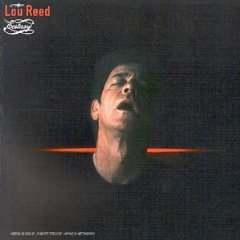 Another loosely conceptual album, Ecstasy has Lou ruminating somewhat bitterly on life and the death of love. It's fine, but at times it's also unintentionally hilarious (Modern Dance starts promisingly but then has him speculating that, "Maybe I should go and live in Edin-burrow, in a kilt, doin' a modern dance").
Another loosely conceptual album, Ecstasy has Lou ruminating somewhat bitterly on life and the death of love. It's fine, but at times it's also unintentionally hilarious (Modern Dance starts promisingly but then has him speculating that, "Maybe I should go and live in Edin-burrow, in a kilt, doin' a modern dance").
At other times it's downright grizzly (the tortured 18 minute guitar workout of Possum).
His speak-sing voice, which once allowed for dry wryness, now sounded bereft of commitment beyond a curious quivering. He starts Mad with a bleating delivery of the title and sounds like a sheep. Ba-aad move Lou.
But as a guitarist he's one of the great, studied primitives alongside Neil Young, and acutely aware of the guitar's storytelling qualities someone like Tom Verlaine brought to rock. On that score alone, Ecstasy knocked most current albums at the time into a hat.
Reed demands we take him seriously. But to take Ecstasy as seriously as he might have wished just allowed its flaws to be illuminated.
A cautionary note about artists like Lou Reed however: perhaps familiarity has lessened their impact. Eric Clapton could release the best album of his career right now, but it's likely it would go right past most people. They've had a lot of Eric Clapton in their lives.
In that regard, Patti Smith's "retirement" to Detroit for most of the 80s allowed a career hiatus (and a life). It also meant she could "return." And from somewhere.
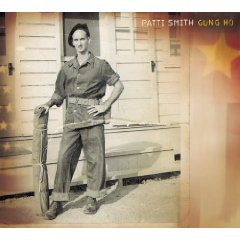 Her Gone Again (96) telegraphed an artist once more in command of her art, and fragile but self-assured. There had been a few respectable albums subsequently, but while each had its moments, they weren't as fully satisfying as Gung Ho which, from the first bars, has that commanding Smith gravitas and classic rock'n'roll fire'n'brimstone.
Her Gone Again (96) telegraphed an artist once more in command of her art, and fragile but self-assured. There had been a few respectable albums subsequently, but while each had its moments, they weren't as fully satisfying as Gung Ho which, from the first bars, has that commanding Smith gravitas and classic rock'n'roll fire'n'brimstone.
She embraces ancient, sacred ceremonies and the mystic, and conjures up poetic mysteries of love ("will you come to the temple tonight, and dance for me there"). Unlike Reed's album, which is inward-looking, Smith's engages her world ("am I not a woman and a sister too") often with more love and affection than anger.
But because she's an adult and mother she's allowed to her hector her (rock'n'roll) children a little. Crack addicts are skewered with the line: "That's how you repay your ancestors," in her angry, spiralling Strange Messengers.
Produced by Gil Norton (Pixies, Foo Fighters) Gung Ho has a sonic sharpness, Tom Verlaine guests on the fiery pop of Glitter in Their Eyes, and her epic is the superb 12-minute title track which is a somewhat belated but moving tribute to Vietnam's revolutionary, political visionary Ho Chi Minh, and punctuated by the brooding ominous thump of a helicopter.
It reminds you that the Seventies which shaped her are where she still sees and hears herself. If this song Gung Ho had come out in '76 it would have been stunning, now it just tells you her headspace hasn't changed much in many decades. Like Lou.
Sure, there are times when she sounds like Patti Smith, and we've had a lot of Patti Smith in our lives.
But she does Patti Smith better than anyone. All Rights Reserved.

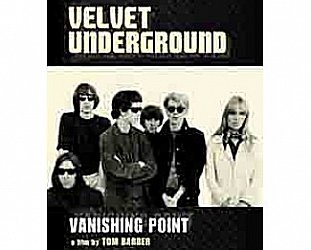
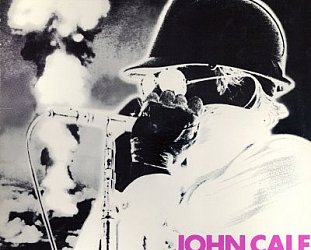

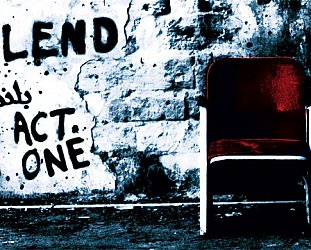
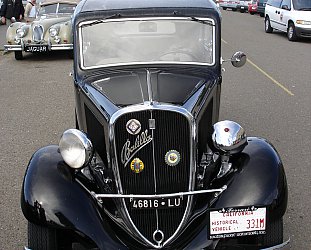

post a comment